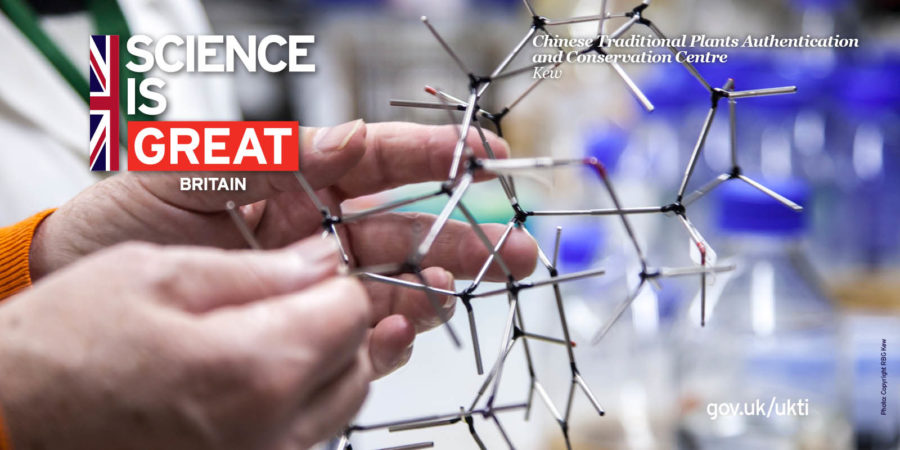The UK’s recent success at the Olympics showed how working collectively as a team, we can achieve greatness, despite being a relatively small nation. In Government, we understand that used carefully, sporting prowess can be a source of soft power for the UK, as are many other sectors of which we are proud: fashion, film & media, heritage…the list goes on. Of course, these activities are interrelated. Sporting success depends upon sponsorship through our media. It has also benefited from our world class sports science, a wide discipline which includes physiology and psychology, but also materials science and engineering.
So let’s consider the importance of science and innovation, both as a source of soft power and as a significant activity in enhancing UK prosperity. When people think about science, they often conjure up images of people working alone in labs. In reality, science is also a collaborative effort but much of that collaboration happens internationally. Science can be used to build international relationships, support prosperity, and tackle the biggest challenges facing society today, such as those associated with poverty and disease.
The UK is a global leader in science and innovation, and as in sport, we are a world-leading nation of innovators: from DNA to in-vitro fertilisation (IVF) to space and satellites. The UK has won 78 Nobel Prizes in natural and physical sciences and has the largest life sciences sector in Europe. With less than 1% of the global population, the UK accounts for 6.4% of global journal articles, 11.6% of citations and 15.9% of the world’s most highly cited articles. The research conducted in our universities tackles those big problems facing humanity today. Further, the UK is a definite partner of choice for many nations looking to build science collaborations.
As the FCO’s Chief Scientific Adviser (CSA), I engage strategically with other countries to enhance scientific relationships in a way that unlocks prosperity opportunities for the UK. I work especially closely with countries where there is an opportunity to improve our relationship through science. They need to be doing good quality science in areas that the UK cares about if we are to get the interest of scientists in the UK. Such engagement bears most fruit where we have established key science contacts at Ministerial or Head of Academy level and where there is a UK diaspora with which we can engage, providing context and understanding.
For example, in April this year I visited Buenos Aires and met key members of the science community, including Science Minister Lino Barañao, the only Minister to remain from the previous administration and an award-winning biochemist in his own right. There was a strong appetite for greater engagement with the UK. Argentina has evident expertise and is a credible partner in science, presenting significant prosperity opportunities. The other week, I took the Argentine Ambassador in London on a visit to Kew Gardens so he could learn about Kew’s work on conservation and plant identification. These activities should eventually lead to a ramping-up of mutually beneficial science cooperation between the UK and Argentina.
I support, and am supported in this work, by the overseas Science and Innovation Network (SIN), over 90 officers in 31 countries building partnerships with the UK around science and innovation.
Last year, SIN contributed to £137m of business wins and £115m research funds leveraged. Successes included a joint £9m with GSK on green chemistry and drug discovery in Brazil, £12.3m for the Rutherford Appleton Laboratory to deliver lasers in the Czech Republic, and space collaboration worth £8.5m for the South African National Space Agency and UK Space Agency.
We work on important global challenges and security issues such as antimicrobial resistance (AMR) where SIN played a leading role in raising the profile of the issue internationally, and water security, where the team in Israel is leading on regional work on water quality and availability. UK scientists are even working in North Korea, where they monitor earthquakes at the invitation of the Pyongyang government. This rare collaboration between North Korean and Western scientists, supported by the UK’s Royal Society and the American Association for the Advancement of Science in Washington DC, has used six state-of-the-art seismometers to probe the ground beneath a dangerous volcano on the Chinese–Korean border, revealing the geological structures that could lead to future eruptions.
SIN China influenced the introduction of China’s first ever standard for animal welfare which will open up opportunities in the cosmetics, chemicals and pharmaceuticals markets worth £250m per year. This is a fantastic achievement. As well as reducing suffering for animals, it will yield significant financial benefits and further, our approach was based on evidence which showed that it leads to better science outcomes. Above all though, it shows how UK science excellence is valued the world over. Even in a huge market such as China, it can help shape the domestic agenda, bringing closer people-to-people links and greater understanding between two nations.
To go back to the Olympics, what really makes our athletes stand out is their ability to react. So from a chemist’s point of view perhaps rewarding success with gold is a little odd because gold is pretty unreactive stuff. On the other hand that means gold does not tarnish and nor will those magnificent achievements, so perhaps it is appropriate. As for the ability of gold to be so ductile … OK, this science analogy has gone far enough! Anyway, Olympic gold medals are actually made of silver with a thin layer of gold; the last solid gold Olympic medal was used in 1912.
Whether in Olympic or scientific terms, the UK has long shown its ability to achieve the gold standard.

